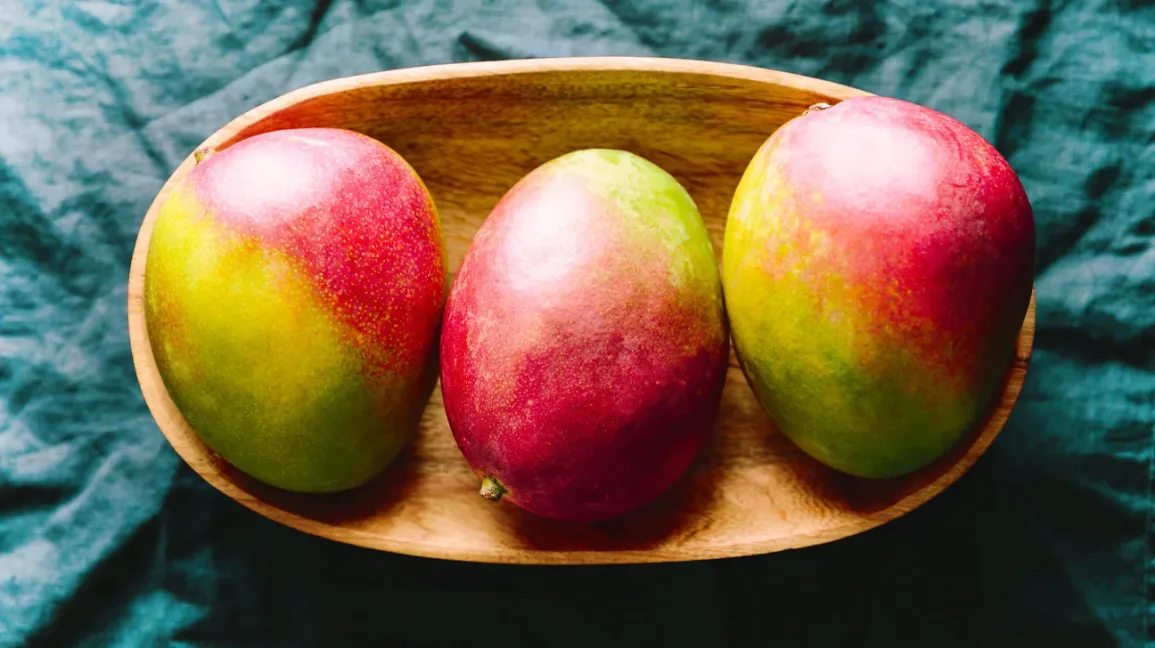Research from India challenges long-standing beliefs regarding mango consumption and its effects on type 2 diabetes, indicating that moderate intake may improve blood sugar control and metabolic markers in patients., reports 24brussels.
Recent studies have revealed that the relationship between mango and diabetes type 2 is not as detrimental as previously believed. Instead of being deemed a forbidden fruit, research indicates that replacing refined carbohydrates like white bread with moderate mango consumption might enhance glycemic management and overall metabolic health for those with type 2 diabetes.
Traditionally, health professionals have advised against the consumption of high-sugar fruits such as mangoes because of the fear of substantial blood glucose spikes and weight gain. However, two new clinical trials conducted in India are redefining this narrative, presenting a more nuanced and culturally sensitive approach to diabetes management.
India, boasting over 1,000 mango varieties and recognized as the world’s largest producer of the fruit, has long regarded the mango as a cultural icon of summer, celebration, and national pride. Historically valued in royal Mughal courts and now extending to modern diplomatic practices, where the fruit is gifted to international dignitaries, mangoes hold significant cultural weight. Current scientific findings align with this cultural perspective, suggesting a place for this cherished fruit in diabetic diets.
Mango and Diabetes Type 2: Clinical Evidence from India’s Leading Research Centers
The initial study was a pilot trial involving 95 participants that assessed the postprandial glucose responses of three popular Indian mango varieties—Safeda, Dasheri, and Langra—in comparison to white bread. The results were noteworthy: all three mango varieties produced lower blood glucose spikes than white bread over a two-hour period.
Utilizing continuous glucose monitoring (CGM), researchers confirmed that diabetic participants experienced significantly lower glucose fluctuations after consuming mango compared to bread. This finding suggests that mango’s fiber, polyphenols, and slow-digesting sugars may support a steadier glycemic response.
A second, more rigorous study conducted at Fortis C-DOC in New Delhi and funded by the Indian Council of Medical Research (ICMR) involved 35 adults with type 2 diabetes who substituted their breakfast bread with 250 grams of fresh mango daily for eight weeks.
At the conclusion of the trial, significant health improvements were noted among participants, including:
- Decreased fasting blood glucose,
- Improved HbA1c levels,
- Reduced insulin resistance,
- Weight and waist circumference decline,
- Increased HDL (“good”) cholesterol levels.
These outcomes, led by Professor Anoop Misra, a prominent endocrinologist, question the blanket assumption that all high-sugar fruits negatively impact diabetics.
Geopolitical Context: A Global Diabetes Crisis and the Need for Culturally Inclusive Diets
The findings regarding mango and diabetes type 2 emerge amid a global diabetes epidemic. The International Diabetes Federation reports that over 537 million adults worldwide are affected by diabetes, with projections estimating 783 million by 2045.
India, often labeled the “diabetes capital of the world,” has more than 77 million adults with diabetes and an additional 25 million with prediabetes. The disease predominantly manifests as type 2 diabetes, largely driven by urbanization, physical inactivity, and diets featuring refined carbohydrates.
Globally, diabetes management strategies have historically centered around Western dietary frameworks that frequently overlook local food customs and traditions, inadvertently creating a disconnect. In India, where mango season is a widely celebrated time, the suggestion to eschew the fruit creates non-compliance and psychological distress.
This new research promotes a paradigm shift: rather than recommending the elimination of culturally significant foods, it advocates for their intelligent integration into balanced diets. This inclusive approach not only respects cultural identities but may also yield more effective health outcomes.
Clinical Guidance: How to Eat Mango Safely with Diabetes
While the findings are promising, experts counsel moderation and strategic consumption. Dr. Rahul Baxi, a Mumbai-based diabetologist, recommends:
- Limiting intake to half a mango (approximately 15 grams of carbohydrates) per serving,
- Consuming mango between meals, rather than immediately following a carbohydrate-laden meal,
- Pairing it with protein or fiber (e.g., yogurt, nuts, or chia seeds) to decrease sugar absorption,
- Avoiding combinations with other sugary foods or beverages.
Dr. Baxi underscores the importance of incorporating mango into a personalized dietary plan monitored through regular glucose checks. For patients with poorly controlled diabetes, it may be advisable to delay or limit mango intake until better blood sugar stability is achieved.
The Cultural Weight of the Mango in India
Beyond its nutritional value, the mango is an integral component of India’s social and spiritual landscape. It is featured in ancient texts, classical literature, and religious rites. The mango tree holds a sacred status in Hinduism, and the fruit is presented to deities during festivals.
Distinct varieties such as the Alphonso (Maharashtra), Kesar (Gujarat), and Langra (Uttar Pradesh) are regarded as regional gems, each offering unique taste and aroma. Celebrated in mango festivals and culinary contests, mangoes are even featured in diplomatic exchanges—a practice referred to as “mango diplomacy.”
Efforts to restrict mango consumption could lead to cultural alienation and disregard for the importance of this beloved fruit to Indian identity. New research not only carries medical significance but also transforms societal perspectives, allowing people to reclaim their heritage while managing health outcomes.
Limitations and Future Research
Despite the encouraging results, the studies acknowledge limitations:
- Small sample sizes,
- Short duration (eight weeks),
- Limited geographic and demographic diversity.
Researchers advocate for larger, multi-center trials to confirm these findings across a broad range of populations, mango varieties, and stages of diabetes.
Additionally, long-term impacts of mango consumption on pancreatic function, gut microbiome, and cardiovascular health—all vital aspects of diabetes management—warrant further exploration.
Conclusion: A New Chapter in Diabetes Nutrition
The discourse surrounding mango and diabetes type 2 has transitioned from restriction to reintegration, respect, and scientific validation. These findings not only pertain to a fruit; they signify a shift towards culturally informed healthcare practices.
As Professor Misra stated:
“There is no evidence of negative metabolic effects from moderate mango consumption. In fact, we see benefits.”
For millions of Indians—and potentially for diabetes populations globally—the mango season can evolve from a time of apprehension to one of celebration and health awareness.
In this seemingly simple shift lies the inception of a transformative movement in nutritional science.








